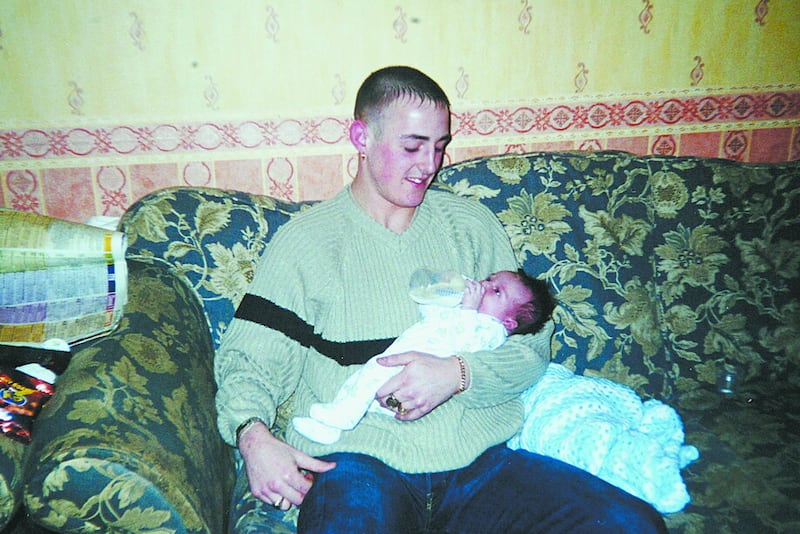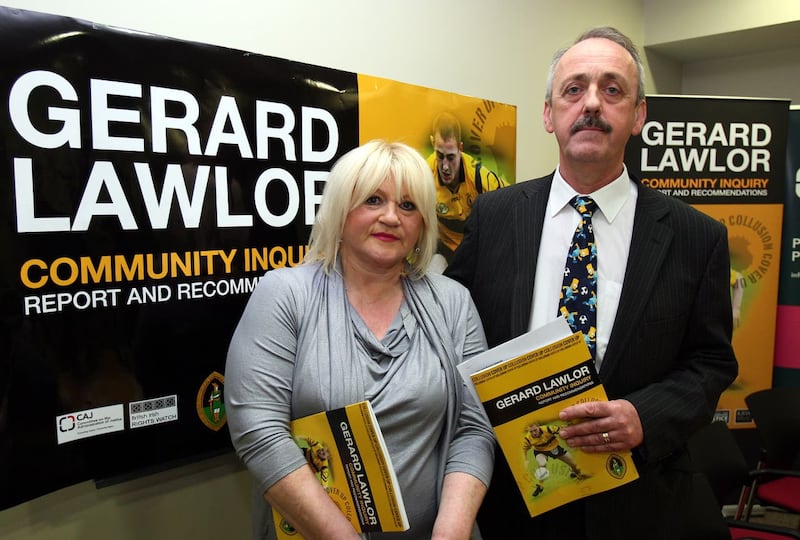There were significant failings in the PSNI investigation into the murder of a young father in Belfast in 2002, but no evidence of collusive behaviours, Police Ombudsman Marie Anderson has said.
Delivering a statement into the death of Gerard Lawlor, Mrs Anderson also said she had found no evidence that the murder could have been prevented.
Gerard Lawlor, a Catholic, was shot dead by loyalists shortly after midnight on July 22 2002.
Mr Lawlor was murdered as he walked along the Floral Road in north Belfast on his way home after a night out at the Bellevue Arms on the Antrim Road.

He was 19 years old and had a partner and an 18-month-old son.
On the evening of July 21, there were five other gun attacks in north Belfast.
Read more:
Gerard Lawlor: Ombudsman to make statement on 2002 murder
No-one has ever been charged with or prosecuted for the murder of Mr Lawlor.
Mr Lawlor’s family had raised concerns with the Police Ombudsman about the preventability of the murder, protection of informants and allegations of collusion, as well as how the PSNI investigation was conducted.
Mrs Anderson said: “Sectarian tensions were high in north Belfast on the night of July 21-22 2002 and although police resources were undoubtedly stretched, police and military patrols continued in interface areas that evening and both police and military vehicle check points were also in place.
“My investigation found no evidence that police had prior information that Gerard Lawlor was going to be targeted or that loyalist paramilitaries were planning an attack in the Floral Road area, and I do not believe that an opportunity existed for police to prevent the murder.”
She added: “Initial police actions following the murder were conducted in a thorough and competent manner.
“Scenes were secured and forensically examined, and police conducted extensive witness and CCTV inquiries in the vicinity of the murder scene, in addition to the route that Mr Lawlor took upon leaving the Bellevue Arms, and potential routes taken by the murderers before, and after, the attack.
“However, my investigation did find evidence of significant failings in aspects of the police investigation and, therefore, I have concluded that a number of the complaints, allegations and concerns made by the family about police actions and omissions are legitimate and justified.”

Her report found investigative failings included:
– A failure to document and develop a targeted covert/sensitive strategy with defined objectives for the purposes of the murder investigation;
– A failure to conduct searches, arrests and interviews in a timely manner as a result of which potential forensic and other evidence may have been lost;
– A failure to obtain all relevant telecommunications data;
– A failure to ensure the continuation of a dedicated family liaison officer;
– A failure to establish clear communication lines and record all contacts in accordance with family liaison guidance applicable at the time;
– A failure to maintain and complete policy file/decisions;
– A failure to maintain CCTV viewing logs;
– A failure to link the murder with a series of sectarian attacks;
– A failure to fully consider the dissemination of all relevant intelligence to the senior investigating officer.

In respect of an allegation of collusion, Mrs Anderson said: “I have carefully considered all of the available evidence and information in this investigation.
“There is no evidence that Mr Lawlor’s murder was reasonably foreseeable and therefore preventable.
“I also concluded that there is no evidence that the PSNI or any of its officers sought to protect any informant.
“I have therefore concluded that there is nothing uncovered by this investigation that would support conclusions that there was ‘collusion’ or collusive behaviour on the part of any police officer.”
The Ombudsman expressed her gratitude to Mr Lawlor’s family for their co-operation and patience in awaiting the outcome of the investigation and publication of the public statement.
In a statemnt released this afternoon. Detective Chief Superintendent Ian Saunders, the PSNI's head of legacy and disclosure said: “I recognise the continued pain and suffering felt by the family of Gerard Lawlor. Their suffering does not fade and my thoughts are with them today.
“We note the comments made by the Police Ombudsman and acknowledge her findings around the original investigation into Gerard’s murder on 22nd July 2002.
“We will now take time to carefully consider this report and its findings."







